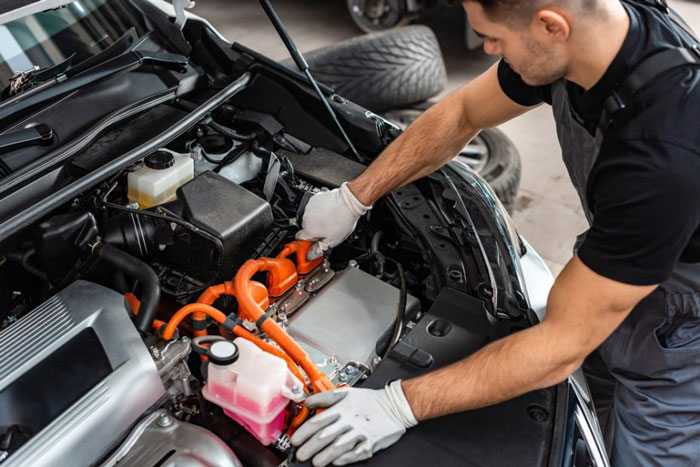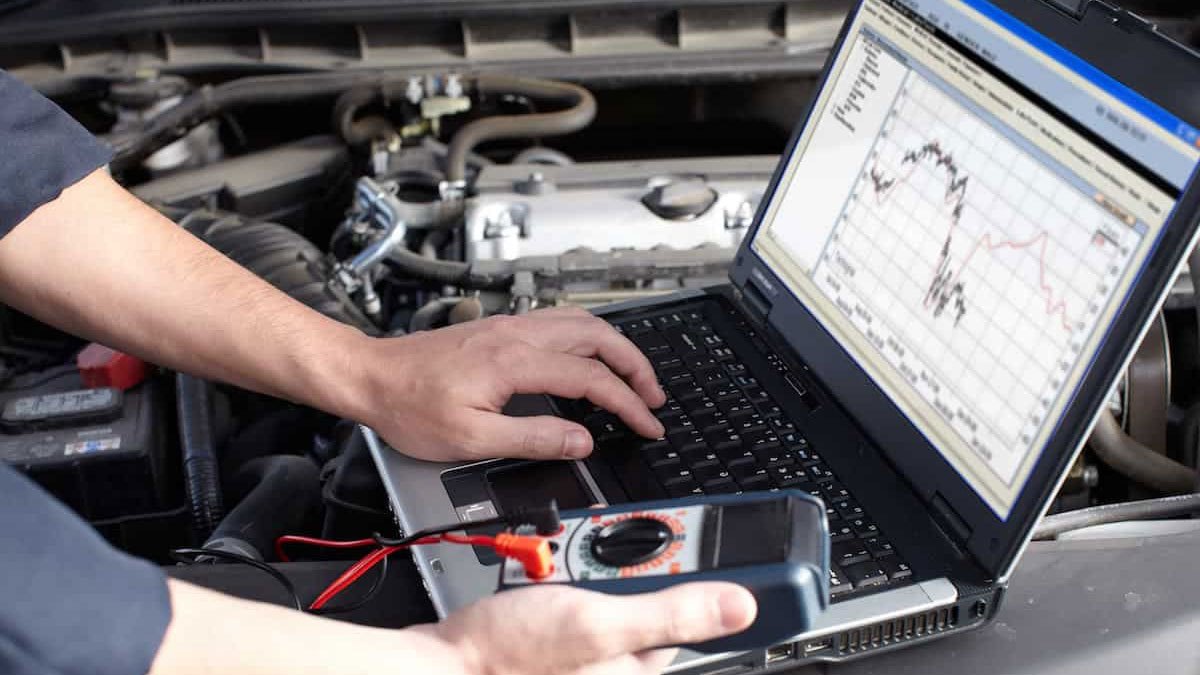So, you’re cruising down the road, feeling like you’re in a Fast and Furious movie, when suddenly your car starts acting like a diva on a bad day. Don’t worry, folks, it might just be your PCM throwing a tantrum! In this text, I’ll walk you through the telltale signs that your car’s PCM (Powertrain Control Module) is up to no good.
Ever felt like your car is speaking a different language, flashing random warning lights like it’s auditioning for a disco show? Yep, that could be your PCM acting up. From engine stutters that make your car sound like it’s beatboxing to mysterious stalls that leave you stranded like a character in a horror movie, these symptoms can turn your joyride into a nightmare.
Buckle up, dear readers, as I take you on a journey through the quirky world of PCM troubles. It’s like solving a mystery, but instead of Sherlock Holmes, you’ve got me, your friendly neighborhood car enthusiast, here to decode the cryptic language of your car’s misbehaving PCM.
Understanding PCM and Its Importance in Your Vehicle
Ah, the mysterious world of PCM (Powertrain Control Module). It’s like the Dumbledore of your car, silently working its magic to keep everything running smoothly. So, what’s the deal with this crucial component? Let’s break it down in a way that even your car would appreciate!

What is PCM, Anyway?
In simple terms, PCM is the brain of your vehicle. It’s the Sherlock Holmes that deciphers the clues from various sensors and ensures your car performs at its best. Imagine it as a tiny but mighty detective solving the case of your car troubles.
Why Does PCM Matter?
Well, without a properly functioning PCM, your car would be like a riddle wrapped in a mystery inside an enigma. It controls essential functions like fuel injection, engine timing, and emissions, ensuring your ride doesn’t turn into a wild rollercoaster ride of surprises.
Getting to Know Your Car’s Inner Detective
Understanding PCM is like learning a new language – a language of beeps, codes, and signals only your car comprehends. By familiarizing yourself with its quirks, you can become the Dr. Watson to your car’s Sherlock, deciphering the signals it sends your way.
Key Symptoms of a Bad PCM
Let’s decode the secret language of your car’s Powertrain Control Module (PCM)! Here are the clues it’s giving you that something’s amiss:
Check Engine Light Activation
When your car’s PCM decides to play detective and switches on the check engine light, it’s like the car saying, “Hey, I’ve got a mystery for you to solve!” Don’t ignore this cryptic signal; it’s the PCM’s way of hinting that trouble is brewing under the hood.
Vehicle Fails to Start or Starts Roughly
Imagine your car doing a bad impression of a starter motor struggling to wake up in the morning—yeah, that’s a rough start! If your vehicle refuses to cooperate when you turn the key, it could be the PCM throwing a tantrum and causing starting issues.
Erratic Engine Performance
Is your car acting like a moody teenager, with unpredictable behavior on the road? Blame it on the PCM! When your engine starts behaving erratically—hesitating, stalling, or guzzling fuel like there’s no tomorrow—it’s time to check if your PCM is up to some mischief.
Transmission Issues
Ah, the joys of a glitchy transmission courtesy of a misbehaving PCM! If you notice your car shifting gears at all the wrong times, slipping out of gear unexpectedly, or making odd noises while shifting, it could be the PCM pulling the strings behind the scenes.
Buckle up, folks! Your car’s PCM is a quirky detective, and it’s up to you to crack the code of these symptoms before the mystery deepens.
Common Causes of PCM Failures
Let’s jump into the mysterious world of PCM failures and uncover the common culprits behind these brain malfunctions.
Electrical Overloads
When it comes to PCM failures, electrical overloads are like throwing a party that’s just too wild for the little brain box under your hood.
Environmental Damage
Think of environmental damage to your PCM like sending your car’s brain on a nature hike without proper gear – it’s gonna get a little fried out there.
Diagnosing and Fixing a Faulty PCM
Hey there, gearheads! Let’s jump into the fun world of diagnosing and fixing a cranky PCM. It’s like being a mechanic detective, solving the mystery of your car’s brain glitches!
Steps for Proper Diagnosis
- Listen to Your Car: Just like understanding a friend’s bad mood, pay attention to strange sounds or behaviors your car is making.
- Scan for Codes: Get a diagnostic tool or visit a mechanic to read the trouble codes your PCM is sending out.
- Inspect Wiring and Connections: Check for loose wires or corroded connections; sometimes, a simple fix is all it takes.
- Consider Sensor Testing: Test various sensors to pinpoint any underlying issues affecting your PCM’s performance.
- Consult a Pro: If in doubt, it’s always wise to seek help from a professional mechanic who speaks fluent PCM.
- Repairing the PCM:
- Fast and Cost-Effective: Fixing minor issues can be a quick and budget-friendly solution.
- DIY Potential: Some repairs are simple enough for a hands-on enthusiast to tackle.
- Risk of Recurrence: Keep in mind that repaired PCMs may act up again if underlying problems persist.
- Replacing the PCM:
- Fresh Start: A new PCM can give your ride a clean slate, erasing past troubles.
- Professional Installation: Installing a new PCM often requires skilled hands for a precise setup.
- Cost Consideration: While pricier, replacement might be the best long-term investment for a trouble-free brain.
Conclusion
Well, folks, there you have it! Your car’s PCM is like a mysterious detective, dropping hints through cryptic signals. It’s crucial to decode these messages before your vehicle turns into a real-life drama series. Remember, electrical overloads and nature hikes without protection are the PCM’s worst enemies – keep them at bay!
Diagnosing PCM issues is like solving a puzzle, but with the right tools and a sprinkle of DIY magic, you can crack the case. Whether it’s a minor repair or a fresh start with a replacement, always consider the cost and expertise involved. So, next time your car acts up, channel your inner Sherlock and give that PCM a run for its money!
Frequently Asked Questions
How can I identify symptoms of a faulty PCM?
Key symptoms of a malfunctioning PCM include activation of the check engine light, starting issues, erratic engine performance, and transmission problems.
What are common causes of PCM failures?
Electrical overloads and environmental damage, like exposure to harsh elements, are common causes of PCM failures.
How can I diagnose a faulty PCM?
Diagnose a faulty PCM by listening to the car, scanning for codes, inspecting wiring, and seeking professional advice for proper diagnosis.
Can minor PCM issues be repaired?
Minor PCM issues can be repaired, and there could be potential for DIY fixes. Professional installation and cost considerations are important for trouble-free repairs.

